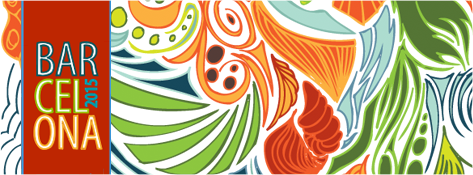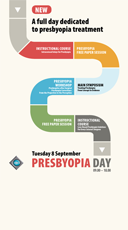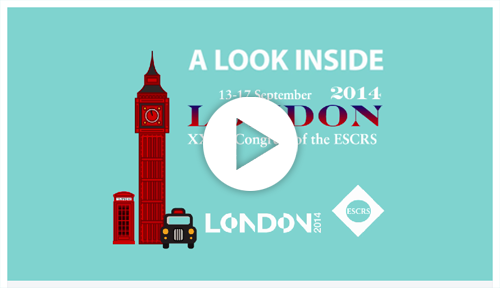Posters
(results will display both Free Papers & Poster)
Outcomes of Descemet's stripping automated endothelial keratoplasty (DSAEK) using Tan’s EndoGlide
Poster Details
First Author: V.Avadhanam UK
Co Author(s): J. Chervenkoff C. Liu
Abstract Details
Purpose:
Descemet-stripping automated endothelial keratoplasty (DSAEK) involves endothelium transplantation along with part of the corneal stroma, which results in quicker visual rehabilitation than penetrating keratoplasty and also obviates the complications related to graft sutures in the latter. The purpose of this study was to report the outcomes of 26 DSAEK cases from a single centre.
Setting:
All operations were performed as part of the routine eye care by a consultant or a fellow grade surgeon at the Sussex Eye Hospital, Brighton, UK. Pre-cut grafts were inserted using Tan’s EndoGlide.
Methods:
Demographic details, pre- and post-surgical data, pinhole corrected visual acuity (VA), donor graft thickness and endothelial cell density (ECD) were recorded for a period of 12 months. Average patient age at the time of surgery was 72.2 years (range 51-94). One case was herpetic endothelitis, four were bullous keratopathy and 21 were Fuchs' endothelial dystrophy. One patient underwent triple procedure (DSAEK, Phacoemulsification and IOL insertion). Mean donor graft thickness was 102±9 microns and its mean diameter was 8.7 mm (range 8-9 mm) post-trephination. Mean preoperative donor ECD was 2649 ± 236 cells/mm2.
Results:
At the time of writing this abstract, 13 of 18 patients had a VA of 6/12 or better after 12 months. The average post-operative ECD at 1,3,6 and 12 post-operative months was 1224, 1032, 1013 and 818 cells/mm2, respectively. Four grafts needed rebubbling. Three grafts were replaced due to primary failure or deatchment. Three eyes developed postoperative glaucoma requiring long-term medical treatment. At twelve months, six eyes required YAG-laser capsulotomies.
Conclusions:
This study demonstrated DSAEK’s potential for quick visual rehabilitation and repeatability with a good success rate.
Financial Disclosure:
NONE





